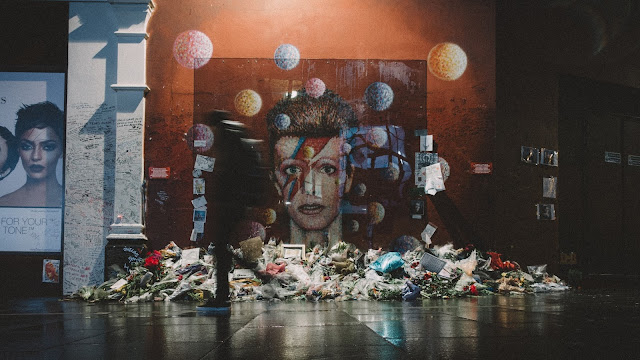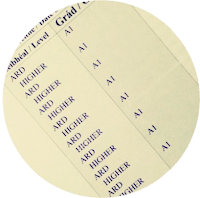Write an article for a serious publication in which you consider whether scientists or writers and artists have made, and continue to make, the greater contribution to society. (2017)
(100 mark Composition question).
This is an essay from a current Leaving Cert student. It’s published under our #625Lab section that reviews the strengths and weaknesses of students’ essays with comments and corrections. You may also like: Complete Guide to Leaving Cert English (€)
This essay is spectacular – it reads like it is straight out of the Guardian. Well done E.!
You are stuck on an island and can bring only one person with you: an artist/writer or a scientist, who do you chose? (This is an interesting way to rephrase the question – and frankly it makes it clearer.)
Generally, I think people would choose the scientist. How, on a practical level, could artists and writers be more important than scientists? Scientists discover the secrets of the world around us, and contribute immensely in fields such as medicine, engineering, geology and psychology. All crucial components of society. Artists on the other hand seem redundant. Unnecessary fantasisers who dwell on the ideal, instead of the pragmatic. But what if this isn’t the case?
To answer this question accurately, we need to take a look at the differences between an artist, a writer and a scientist. A scientist, by definition, is one who studies the physical world. This could be plants (botany), animals (zoology), chemicals (chemistry) and so on. A writer is defined as a person who is engaged in writing – whether it be stories, articles, books, e.t.c. – as a profession. An artist, on the other hand, is much harder to define. An artist could be a painter, sculptor, architect or even an inventor. Ultimately, an artist is a creator – whether the creation is practical to society or not depends on the artist. So to put it briefly, a scientist studies the world around him, a writer writes about it, and an artists interprets it.
But who contributes to it? Well, this is where my comparison with being stuck on an island comes in. At first, it seems completely unrelated to the question at hand: who contributes more to society, presently and generally? The truth is that the present is very much like being stuck on an island. In both cases, the unknown is plentiful and only the innovators are the ones who prosper. The only difference is that on an island you are fighting for survival, while in reality we are fighting to contribute to society. This becomes clear when we look at the world of business. Those who become successful are the ones who innovate, the entrepreneurs. People like Warren Buffet, Steve Jobs, and Bill Gates are some of the most successful people of our generation and they all share something in common: they were able to adapt to the present and visualise the future (at least before anyone else could).
It is obvious that these people gave their own important contribution to society. Bill Gates and Steve Jobs have revolutionised technology, which has led to improvements in entertainment, medicine, finance and transport. It should also be obvious that neither of these men were scientists. Although they both studied computer science in college, they were certainly not the most advanced, and neither were technically scientists. They did not discover new information that wasn’t there before, but instead used their innovation to apply it to society. As Steven Rosenbaum puts it: “Steve Jobs wasn’t the Einstein of our generation, he was the Picasso.”
It would be untrue to say that Jobs was only an artist, or only a scientist, he was both an artist and a scientist. When it comes to contributions to society, art and science are both important for innovation. This mutual dependence was particularly evident during the Renaissance era in Europe. This was a period from roughly 1300-1700 AD and is considered to be the bridging point between the Middle Ages and the modern world. Why? Because during this period there was a profound pulse of new ideas that contributed more to the modern world than any other time in history. Artists, writers and scientists were interwoven as new discoveries flourished. Leonardo Da Vinci, the renaissance man himself, was a particular figure that illustrated the dependence that art and science have on each other. He was famous for his realistic paintings and sculptures. But his abilities as an artist were significantly augmented by his scientific discoveries. Da Vinci was an apt student of anatomy, having dissected over 30 bodies in his career. His scientific discoveries of the body greatly enhanced his ability to express himself artistically. Rembrandt’s “The Anatomy Lesson” is another example of this. In fact, any painting, sculpture, or artistic expression from the renaissance reflects the deep understanding of science held by the artist.
Additionally, the same can be said for writers, but for different reasons. Writers have had a particular impact on society through writings of history, philosophy, politics and well, science. Unfortunately, writers are just writers, which means that most publications that have impacted society have taken a few years to kick off. A modern example of this is “1984” by George Orwell – a novel which depicts a dystopian future led by a totalitarian regime. Orwell was ahead of his time, but as the years progress it seems that what he warned society about in the book is getting more accurate. But that is subjective, a more solid example is “The Origin Of Species” by Charles Darwin. In this Darwin insisted that modern humans (Homo sapiens) were derived from Neanderthals, who were derived from apes. Understandably, when this idea was introduced in 1859 it was preposterous, and rejected by even the most advanced scientists at the time. Now however, evolution is a huge foundation for modern science.
Writers, particularly historians, have helped us understand more about the past, and therefore more about the future. As George Santayana famously said: “Those who do not learn history are doomed to repeat it.” Writings from philosophers help us to understand more about ourselves. The writings from as early as Plato in The Republic have laid down the framework for our democratic society enjoyed by the Western world. None of these men were scientists, yet their contributions to society are immeasurable.
So what does this mean? It means that we cannot have one without the other. We cannot have science without art, nor can we have art without science. As stated earlier, scientists are those who study the world around us, and artists are those who interpret it. But how can you interpret something without studying it? And how can you study something without interpreting it? You can’t. There is both art and science behind every contribution to society. Before any building is made, there must be an engineer and an architect. The same goes for writing. Without writers, science would not advance. How could it, if there were no books to study?
Which brings us back to the island. If you have taken anything away from this article it should be this: it doesn’t matter who you choose to take with you, because you need both. You could flip a coin maybe. Personally, if I had to choose, I would choose the artist. Not because he would contribute more or have a higher value than a scientist, but because I think the ability to innovate comes naturally to the artist, and the writer – while it is something that has to be taught to the scientist, not all, but most.
…
Here is another version. This essay has some great parts, but it will require significant improvement before it could reach a high grade.
The question itself certainly isn’t all that appealing. If you like these analytical type essays, I think “Write a discursive essay in which you explore the positive and negative aspects of different types of advertising” would have been a better option on the 2017 paper.
Scientist and writers and artists (OK, so straight away, there is ambiguity here: is the author twisting the already awkward question, or is this a plain punctuation mistake where the two “and” conjunctions aren’t separated by a comma? In any case, it’s not a great opening line. Whether it’s fair or not, the opening line has disproportionate importance.) offer two very different kinds contributions to society. Be it technology, trends or expectations, society changes rapidly due to new innovations (there is no other kind of innovation other than the new kind) and ideas served by the fields in science and art. Personally, being a young person in society today, I look forward to the many developments in areas such as technology.

Many people have an image of scientists working in labs with chonical flasks and chemical reactions, doing not much else, but the vast amount of research that they do to develop our world for the better is incredible. We rely on science in our everyday lives, between cleaning our countertop and washing our clothes. We don’t question these everyday things, but many years ago there was a lot of research and trial and error before these household items were put on the shelves of supermarkets everywhere around the world.
Scientists give a hidden message around the globe of not to live in doubt and not to live and not know. (Instead: Scientists communicate their values through action, empowering people by offering knowledge and broadening horizons.) They are very proactive and question everything around them, breaking everything down and eaffecting our world and society for the better. Through observation and experimentation scientists have discovered (developed?) many benefitting (beneficial?) things in our everyday lives. The smallest but yet very significant things. (The “but yet” combination is questionable. It’s probably better to use or the other.) For example, taking shelter under a tree during a thunder storm, this idea, once fatal to many, sounded like common sense until a scientist developed a theory of conduction.
In my opinion, science portrays the image (conveys the message?) that once effort is made, error is okay and all efforts are accounted for. As Adam Savage once said “In the spirit of science, there really is no such thing as a ‘failed experiment’. Any test that yields valid data is a valid test.” (Note the perfect quotation punctuation!) A message that needs to be more emphasised. Mistakes are okay, as long as one learns from mistakes made.
Whether blatant or hidden, considering the above factors, science has and continues to make a greater contribution to society. (It seems as though the author misunderstood the question. The question asks the student to discuss who contributed more, scientists of writers/artists. When the author says “a greater contribution” – what does that mean? Greater than what?)
Writers and artists have made and continue to make a great contribution to society. In my opinion, music artists or actors/actresses expect a great recognition of the work they put in to make our world a better place, recognition in which they deserve, but they almost demand recognition in order to enhance their career or reputation. Many rely on voluntary work to secure themselves a better name, to increase their following or to further their career. In saying that, they deserve every bit of acknowledgement they get. For example, Taylor Swift founded a campaign to protect children from online predators. She is also active with the UNICEF, Red Cross, Children in Need, and the Wounded Warrior Project. In 2012 and 2013, she was named the Most Charitable Celebrity by Today.com. This most definitely increased her fanbase after helping many people in need and taking advantage of her resources to do so. (It’s as if the author wants to make a point, but is afraid. Try not to do this. It’s better to be clear. The author seems to want to say that artists are narcissistic and work for recognition, not for the value they bring to other people. Of course, as a reader I immediately think: scientists aren’t much different. They simply have other ideas as to what recognition means. Getting a paper published in Nature is a scientist’s equivalent of doing a concert in Wembley and being the CTO of Google is like winning an Oscar. Anyway.)
Another important kind of contribution to our society today that a very famous artist, Leonardo da Vinci did was the improvement of the design of scissors. We may not acknowledge the importance of this, but this small thing helps us in our everyday lives. This artist also made a contribution to the world of science by acquiring human skulls and corpses for dissection. This greatly helped advance science. (Nice point, then again da Vinci wasn’t an artist, he was a “Renaissance man”: a jack of many trades and master of all of them.)
A very strong message that artists give to young people all around the world is to express yourself. Artists are successful by being themselves and using their imagination and use this to promote self-happiness in young people today, something in which I personally feel very strongly about. (It’s unclear what the author means by “artists” here. If she is still talking about celebrities, it would seem naive to believe that they are being themselves, especially in their chase for recognition. If she is talking about some other kind of person, she should explain.)
I strongly believe that writers deserve a lot more credit than what they already receive. Professional writers work very long hours and in turn get very little financial reward, unfortunately. The very rare, lucky writer will earn a lucrative amount of money, but this is not often seen. (Perhaps, but this point isn’t all that important when the question compells the student to discuss the contribution that they make compared to scientists.)
Authors play a very important role in many people’s lives, allowing them to escape from the world of reality and everyday problems we all face nowadays. The ability to be able to take someone to a supernatural world where anything is possible is an extraordinary talent and should undoubtedly be recognised. Even a light romantic love story can make someone forget about their everyday problems which is quite important given the extreme amount of pressure that is put on people in (by?) society today. In whole, authors contribute to the happiness of society and give everyone a sense a willingness to strive through everything life puts against them.
The equal beneficence of scientists, writers and artists is something we can all be very proud of in the society we live in. Sometimes we take it for granted, but be it a big or small contribution, we should be appreciative of what these outstanding people do every day to successfully improve our world for the better (change our world for the better, or improve our world. It’s the same problem the author had with “new innovations” above.)
Leaving Cert English is marked using PCLM
Clarity of Purpose:
Marking scheme:
Focus – an article for a serious publication in which candidates consider whether scientists, or writers and artists have made, and continue to make, the greater contribution to society understanding of genre
– the effective use of some elements of informative and argumentative writing e.g. use of allusions, reasoned arguments and counter‐arguments, illustrations, analysis, synthesis, etc. originality and freshness, etc.
The question asks the student to discuss who contributed more, scientists of writers/artists. The author decided she wouldn’t compare the two. Instead, she would celebrate their unique contributions and point out one or two flaws. Perhaps, the author wants to be positive rather than criticising. If so, she should have made it very clear from the introduction that she will not play one group off the other and instead will celebrate their contributions and their differences. However, analytical style essays require the student to be negative, to play devil’s advocate, to come up with counter-arguments… The author is just too nice for an inherently confrontational question!
The author has some “allusions, reasoned arguments and counter‐arguments, illustrations, analysis”, but not really synthesis – and that really takes away from the essay.
Coherence of Delivery
Marking scheme:
The extent to which the perspective is successfully sustained and developed effective shaping of the article sequencing and management of ideas, etc.
There is no framework to this essay, it’s a collection of points about both scientists and writers/artists. The logic also breaks down in a few places.
Efficiency of Language Use
Marking scheme:
Quality and control of language e.g. style, clarity, vocabulary, syntax, punctuation, etc.
You can see the language errors in bold above.
Accuracy of Mechanics
It’s all been tidied up here, but remember that this counts for 10%!




